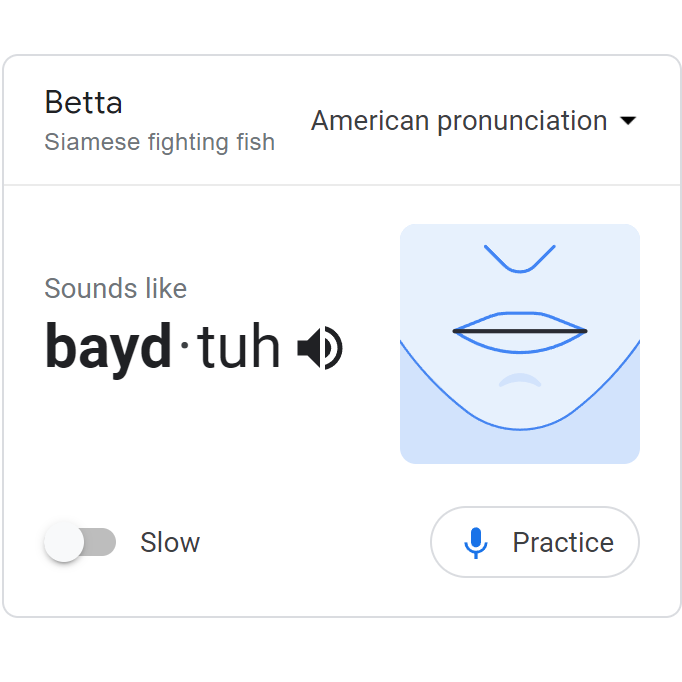History of the genus Betta
The genus (parent classification for a species) of Betta was named in 1850 by Dutch ichtyhologist Pieter Bleeker in his publication “Bijdrage tot de kennis der Visschen met doolhof vormige kieuwen van den Soenda-Molukschen Archipel. Verhandelingen van het Bataviaasch Genootschap van Kunsten en Wetenschappen” which translates to “Contribution to the knowledge of fishes with labrynth-shaped gills of the Sunda-Moluccan Archipelago. Treatises of the Batavian Society of Arts and Scientists”.
The Moluccas are an archipelago in the east of Indonesia where Bleeker identified Betta trifasciata, a spotted fish with a maze-shaped gill formation. It is important to note that genera are usually described in Latin, and Bleeker wrote the name in italics which certainly identifies it as Latin. Bleeker says that the locals call it “ikan wader” which means “wader fish” in Indonesian. The fish was also referred to as “bettah” in Javanese, which isn’t in the Javanese dictionary.
Both the Javanese pronunciation of “bettah” and the Latin pronunciation of “betta” are similar. They are pronounced / beɪt.tʌ /, or “bayd-tuh”, very much like the greek letter beta but with two “t” constants. Bleeker did not cite the origin of the word bettah or indicate its pronunciation, but we know that he created a new Latin word sourced from it and how Latin words are pronounced.
History of the species Betta splenden
Charles T. Regan, a British ichthyologist identified the fish splenden in the genus betta, in the journal “Proceedings of the Zoological Society of London” published in 1910. In Latin, splenden means to brighten.
The uncited myth
There is a myth propagated by Dr. Martin Brammah’s 2015 book “The Betta Bible” and by Aqueon’s website that the word betta is of Malay origin. Although in his book Brammah specifically guesses by saying “(presumably Malay)”. I don’t know why he needed to presume anything when Bleeker’s publication clearly identified it as Javanese origin. Also, Brammah mentions an ancient warrior tribe known as the Bettah, and infers that the genus name for the fish means “warrior”.
Brammah goes on to improperly translate splenden to mean “splendid” and therefore translates Betta splenden to “splendid warrior”.
Although Brammah doesn’t say how to pronounce Betta, the Aqueon website claims that the fish’s common name is pronounced / bɛtʌ /, or “bettuh” like the word “better” because that’s how the supposed ancient tribe pronounced the word. As I said above, the Latin pronunciation of “betta” and the Javanese pronunciation of “bettah” disagree with Aqueon’s site. The Malay pronunciation is the same as the Javanese one.
Additionally, I can’t find any sources that mention an ancient tribe named the Bettah. The existence of the Bettah tribe is a myth in its own right. The earliest mention of the myth that I was able to locate was in a book titled “Caring for Betta Fish” by Marcus Song, published in 2006 by Spring Water Publishing.
For Betta to mean warrior, Bleeker would have had to be the one to identify his spotted fish as a warrior fish because the splenden species was put in the Betta genus later by Regan. Although the Betta trifasciata is known as the Java fighting fish, it’s not very “fighty”. The species name of trifasciata translates to “marked with three bands” in Latin (from trifasciāta, the feminine form of trifasciātus). Bleeker would have had to identify his fish as “the three-banded warrior”, but he didn’t. His only reference to the source for Betta was from “bettah”, the Javanese term for the fish.
Pidgin English (possible source)
It was recorded in 1854 that the word bettah-len was Dutch for “to pay”. Although used as part of the Dutch language, it seems to be Pidgin English for “better lend”. It is possible that the locals at the time were using Pidgin English to speak to Bleeker, in which case the new Latin word would be named after a word pronounced as / bɛtʌ /.
Betawi (possible source)
The people of Batavia, a region mentioned heavily in Bleeker’s publication, are known as the Betawi, which is Indonesian for “people of Batavia”. It is pronounced / beɪ.tɒˈ.weɪ /, or “bay-tah’-way”.
Conclusion
If the Javanese term of “bettah” was Pidgin English, then the word bettah would be pronounced / bɛtʌ /.
If the Javanese term “bettah” was pronounced in the native way, then it would be pronounced / beɪtʌ /.
Either way, a new Latin term was created from these words. That Latin word is Betta and in Latin it is pronounced / beɪt.tʌ /.
